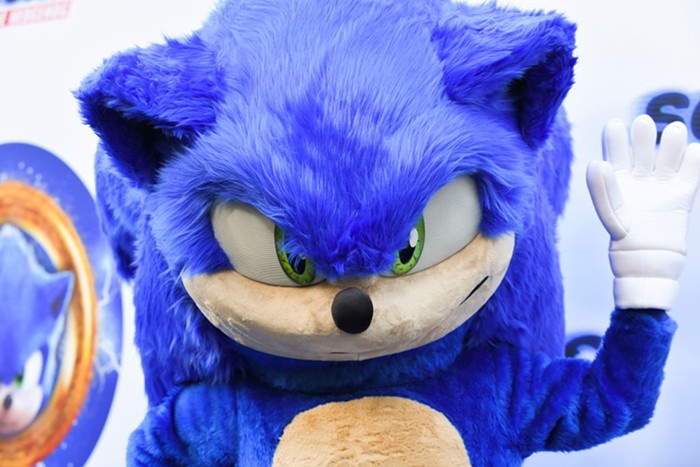Jimmy Corrigan: The Smartest Kid on Earth
Chris Ware
(Pantheon Books)
Now that graphic novels have acquired a little bit of critical repute, receiving discussion in the New York Times Review of Books and elsewhere, some like to play the game of "What is the greatest graphic novel of all time?" Many stump for Alan Moore's The Watchmen, or his From Hell. Others like the work of Frank Miller, or Art Spiegelman's Maus. But now that it's been published in hard covers, more people are going to be paying attention to Chris Ware's incredible, precious Jimmy Corriga: The Smartest Kid on Earth.
Jimmy Corrigan started out as a strip in the Chicago weekly New City, was picked up by Fantagraphics, and now comes fully collected, if slightly modified, in an oblong box of a book by Pantheon (380 pages, $27.50, ISBN0.375.40453.8). Like a mad blend of the footnote frenzied and serenely cool McSweeney's magazine and a denuded version of Windsor McKay's groundbreaking comic strip Little Nemo in Slumberland, Jimmy Corrigan almost gives you too much and too little at the same time.
It's a comic that demands that you work, that you read it again and again, but most of all that you engage with its characters. That's where the problems start for some readers. Some readers and even other cartoonists have criticized Ware for the insubstantiality of his main character, a cubical drone named James Corrigan who one day receives a surprise letter from his never seen biological father, inviting a visit. The near silent Corrigan makes the trip, and a series of oblique, fantasy filled encounters ensue.
Ware seems to be striving to grasp an inherent sadness to life, and that puts off a lot of readers. What's great about Jimmy Corrigan is how well observed it is, and how it can switch from an objective view of its characters to their inner thoughts seamlessly. But you have to be careful; Ware doesn't often announce when he is making these transitions from reality to fantasy.
Most important, it's not trying to be a "graphic novel." Ware told The Imp that "Originally, I wanted to make it look like a regular book. But then I decided, No, I want it to look like a comic book." With its superb framing, and its wistful tones borrowed and seasoned from Charles Schultz's Peanuts, it still is a comic. But is it the greatest graphic novel? Well, yes, definitely the best graphic novel of the 21st century. D.K. HOLM












